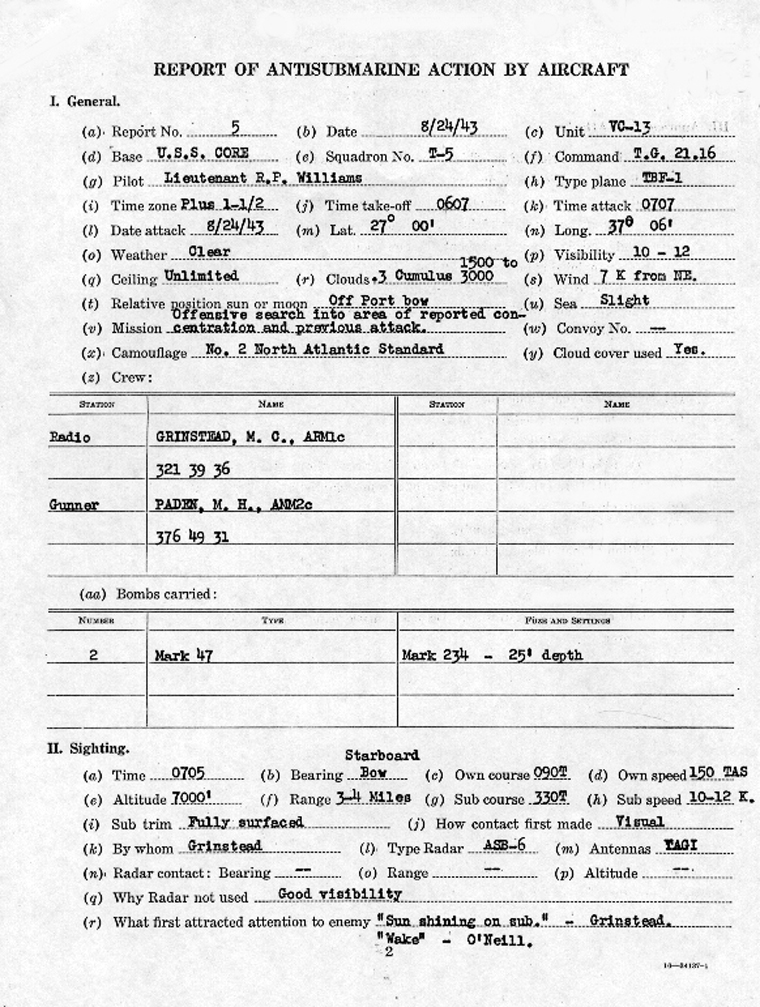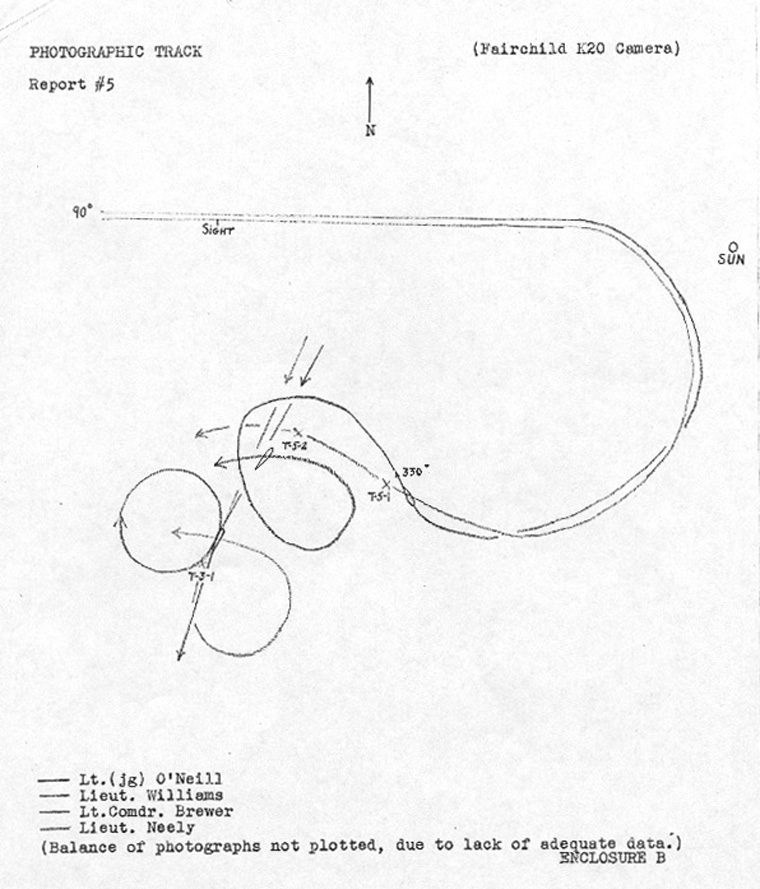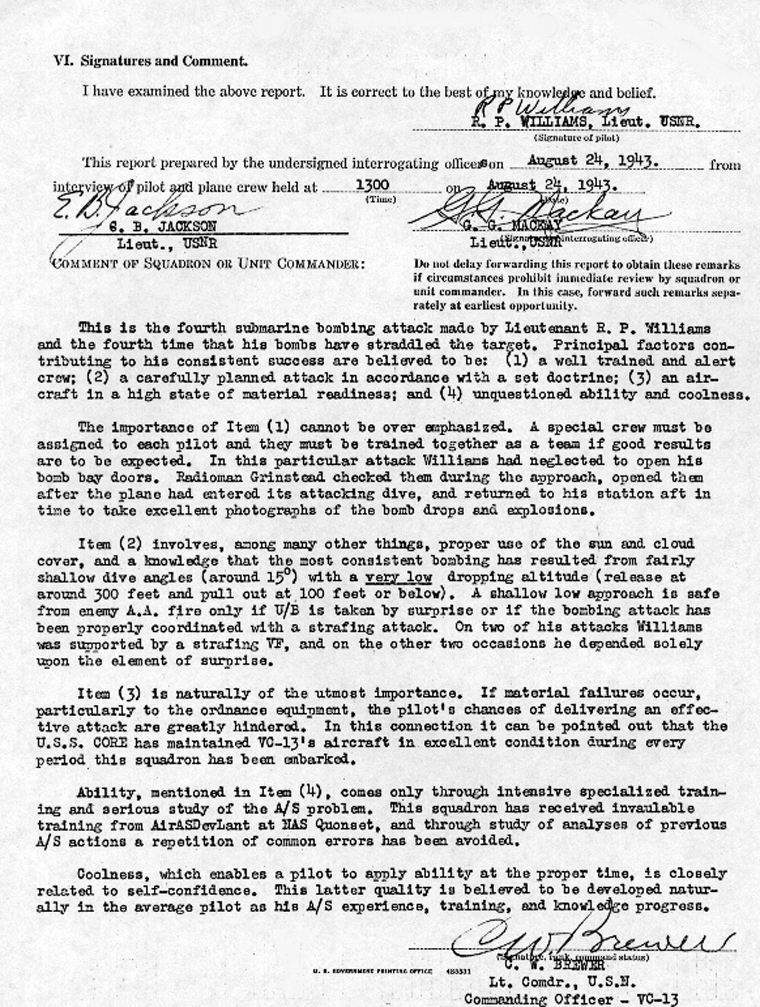

Two sections, each consisting of a TBF-1 and an F4F-4, were launched to search in an estimated area of concentration. This search also included the area all around the point of the previous day’s attack. The first section, Lt. R.P. Williams in the TBF and Lt.(jg) M.G. O’Neil in the fighter, were about 100 miles from the ship flying on course 0900 T at 7000’ above .3 cumulus cloud cover when TBF radioman’s attention was attracted by the reflection of the sun on a fully surfaced light gray submarine on course 3300 T, speed 10 to 12 K, distant 3 to 4 miles. The section sought cloud cover and turned to starboard approaching the submarine. Planes emerged from the clouds astern of the submarine and F4F immediately started strafing run. Shortly thereafter TBF followed in an 180 angle dive, attacking 350 from astern on the starboard quarter. The two Mark 47 depth charges carried by the TBF were dropped from 250’ altitude. The depth charges straddled the U-boat, the number one charge exploding underneath the hull near the conning tower, and the second off the port bow. The water thrown up by the explosions completely enveloped the U-boat with the exception of a few feet of its bow. Submarine turned 900 to port with dense black low-lying smoke trailing aft of the conning tower and commenced settling by the stern. F4F made a tight turn to the left and made a second strafing run from submarine’s starboard quarter. During this run pilot noticed a heavy list to port and some wrecked railing about the conning tower. Sub made no further evasive turns nor was AA fire experienced. |
||
The second section, Lt. R. F. Neely in the TBF and Lt. Comdr. C. W. Brewer in the fighter, heard the report of contact and immediately proceeded to the scene of action. After 3 to 4 minutes. The TBF pilot sighted submarine off his starboard bow at ten miles. Escorting F4F made strafing run from 1500’ altitude from directly astern. TBF followed within 15 seconds, passing very low over submarine from astern, but did not release bombs as circuit breaker was “out”. (See photo taken during this run) F4F, having pulled up sharply to starboard, observed failure to drop and called for a second run. Second strafing run was made from astern. TBF had turned to left and came in on submarine’s port beam following strafing run. Submarine’s sinking condition and survivors in water were apparent to F4F late in second strafing run and TBF pilot, who also observed sinking condition, was instructed to hold his bombs. Submarine still had 8 to 10 knots of speed as it went down sharply by the stern. |
||
Prisoners subsequently stated that one of the bombs exploded directly under the battery room, rupturing it and admitting sea water. Many of the 36 survivors taken aboard were suffering acutely from inhalation of chlorine gas. The cause of the smoke observed by 3 pilots and evident in the photographs is not known, other than it must have been caused by strafing, since it appeared after the first strafing run, and prior to depth charge explosion. |
||
A reliving TBF was dispatched from the ship at 1015 and relieved at 1107. This plane guided USS BAKER to scene and covered it while picking up survivors. USS BAKER had departed carrier on mission at 0725 and arrived at the scene at 1140. |
||
ENCLOSURE (A) |
||

